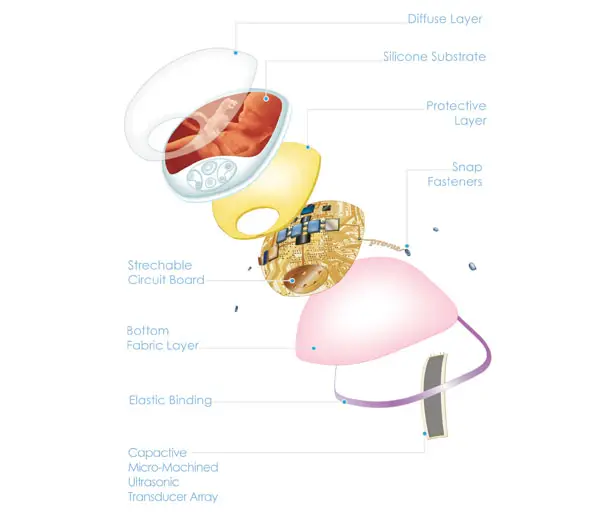When scripture is quoted and the text is not provided, please look to the bottom of the reflection for the text of the scripture.
Let us start by looking at the text from the Gospel according to Matthew.
Mat 4:1-11
(1) The Holy Spirit led Jesus into the desert, so that the devil could test him. (2) After Jesus had gone without eating for forty days and nights, he was very hungry. (3) Then the devil came to him and said, "If you are God's Son, tell these stones to turn into bread.” (4) Jesus answered, "The Scriptures say: 'No one can live only on food. People need every word that God has spoken.' "
(5) Next, the devil took Jesus to the holy city and had him stand on the highest part of the temple. (6) The devil said, "If you are God's Son, jump off. The Scriptures say: 'God will give his angels orders about you. They will catch you in their arms, and you won't hurt your feet on the stones.' " (7) Jesus answered, "The Scriptures also say, 'Don't try to test the Lord your God!' "
(8) Finally, the devil took Jesus up on a very high mountain and showed him all the kingdoms on earth and their power. (9) The devil said to him, "I will give all this to you, if you will bow down and worship me.” (10) Jesus answered, "Go away Satan! The Scriptures say: 'Worship the Lord your God and serve only him.' " (11) Then the devil left Jesus, and angels came to help him.
For this time I’d like to focus on the first two verses.
Now, at first read, it does seem strange that the Holy Spirit would lead Jesus into the desert so that he could be tested, and not just tested, but tested by Satan. Should it really surprise us though? I mean, how would Jesus, being fully human, really, really know who he was if he didn’t face a challenge? Our beliefs are shaped not only by intellectual arguments, but also more strongly by experience. If Jesus did not experience the temptations, and emerge triumphant, would he know what he believed? Having faced the temptations that Satan put to him, and emerged victorious, he was able to concretely testify to what his mission was. He was able to define, for both himself, and us what he came for. You need to be confronted by an idea to form an opinion.
We must also understand that for Jesus to find and save the lost sheep, he must enter the place where it has been lost. He must totally follow down the path that leads to such a loss of self, and in order for redemption to occur, he must conquer the things that cause man to lose himself. However, if Jesus where to give into these temptations, it would not be possible for him to redeem us. In addition, if he did not face the temptations then Jesus would not be able to redeem us, because he would have no contact with us, no opportunity to truly find us (See Heb 2:18). Often we hear the expression, “Don’t judge unless you’ve walked a mile in their shoes.” This is true. Perhaps we can extend this and say, “Don’t try and help unless you can see the person’s shoes.” In this way, many charitable actions would be saved from failure. Sending money to a foreign place is not much help to the people. What they need is recognition. For someone to get close enough to understand the problems. When you send money from afar, you cannot have any idea of whether the project addresses the needs. The philanthropist must immerse himself in the problems, in the pain, of the one he seeks to help. Only in that way can he know what to do.
Back to the Gospel, what I am trying to say is this: Jesus was led by the Spirit to the place where he could find fallen humanity and from there begin to guide us home. He felt our pain, experienced our problems. He knows what we need. And not only did he walk a mile in our shoes, I’m sure in 40 days he covered more ground than that.
Also, notice that Jesus fasted for 40 days and nights in the desert before he was tempted. A period we try to emulate during lent (except that we have some respite each Sunday). This is very important because it was an opportunity for Jesus to learn in the School of Silence. In the School of Silence a person is left to find only himself or herself, their core identity, and in this core identity we recognise our relationship with God. But if the noise of the world is never escaped we can never discover the boundless beauty of this relationship. And if we don’t recognise Jesus, who is also God, when he comes to save us by pointing the way home, how will we ever find the way out of our “lostness”? Jesus built strength in the School of Silence and knew His Divinity (knowledge hidden from the devil), with this knowledge He was ready to refuse anything the devil could offer him. If we, too, are able to move away from the noise of the world we will also discover our relationship with Jesus and be able to know what we are created to be. A discovery so precious, the pearl of great price (Mat 13:46) if you will, that nothing can remove God's peace from us.
Let’s look at the 40 days part. Now, honestly, no matter how bad the food available is, nobody can go without it for 40 days and nights. Impossible. So what is this trying to tell us? The early Church Fathers stretched numerology a bit and said that the four represents the world (North, South, East, West being four corners of the world) and the 10 to represent the 10 commandments, or the law. Hence, 40 represents the law expanded to embrace all nations. And this is consistent with Jesus’ teaching. Another way to view this number is to see in it the reflection of the events in salvation history: Noah’s Ark (rain for 40 days and nights), the 10 commandments (Moses went up Mount Sinai for 40 days), and the Exodus (40 years in the desert). In this, we see Jesus connecting himself, identifying himself, with salvation history.
As a closing for this introduction, I’d like to point out a link to the Old Testament. Where Adam was tempted in the garden he succumbed, as has humanity since. When Jesus was tempted in a place that would become the place of reconciliation and healing, the antidote to the sin, its opposite side, just as the desert is the opposite of the garden. And the antidote to our fallen condition is Love. Jesus teaches always how to love. From the above I think we can see that this love is one of compassion, of entering into the others suffering. The world needs this love. That Christians enter into each other’s “passion” if you will. That we have com-passion. Let’s use the time of lent to feel compassion for those who are less fortunate, and then let’s do something for them.
Scripture verses:
Heb 2:18 And now that Jesus has suffered and was tempted, he can help anyone else who is tempted.
Mat 13:46 and having found one pearl of great price, he went and sold all that he had, and bought it.











